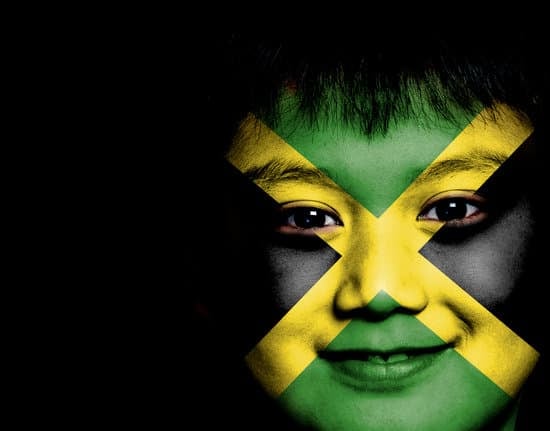Do you want to learn more about Jamaican culture? Are you a fan of the island’s music and its colorful patois? If so, this blog post is for you! Here, we’ll be taking a look at some of Jamaica’s most beloved proverbs, exploring their meanings and how they can be used in everyday life. So grab your favorite beverage, settle into your seat and get ready to explore Jamaican patois proverbs!

Introduction
Introduction to Jamaican Patois, Proverbs, & Culture
Jamaica has its own unique language, called Patois. It is a mix of English and African-based words and phrases that have been passed down through generations. Patois is not just a way of speaking – it is also reflective of the culture and history of Jamaica.
Proverbs are an important part of Jamaican culture. They are often used to impart wisdom and advice in a humorous or metaphorical way. “A trouble shared is a trouble halved” and “A word to the wise is enough” are two examples of Jamaican proverbs.
Jamaica has a rich cultural heritage that includes music, art, literature, cuisine, dance, religion and more. Reggae music has become an international sensation from its roots in Jamaica with legends such as Bob Marley becoming household names. The island is also known for its vibrant cuisine which combines African, Indian and European influences to create dishes like jerk chicken and ackee & saltfish.
Understanding Jamaican Patois can help anyone looking to visit or interact with the people of Jamaica on a deeper level – understanding their language will open up many doors! Similarly, learning about Jamaican proverbs can be both entertaining and informative as they carry centuries-old wisdom within them. Finally, immersing oneself in the culture will provide insight into the island’s past while allowing people

Jamaican proverbs are a way for Jamaicans to express their culture, values, and beliefs. Commonly spoken in the Jamaican Patois language, these proverbs have a range of meanings from simple advice to deep wisdom. For example, “Finger never say look here, him say look yonder” is a reminder to keep your own counsel and not tell everyone what you know—even those closest to you. Other examples include “If you get your han’ in a debil mout’ tek it out” which means don’t get into something or some situation that you can’t handle or may be too dangerous for you. These proverbs are often used as part of everyday speech in Jamaica and help to provide insight into the culture and way of life there.

Jamaica has a rich cultural heritage and is known for its unique language – Jamaican Patois. This language is full of colorful proverbs that have been passed down through the generations. Proverbs in Jamaican Patois are often used to impart wisdom and provide guidance, as well as to express feelings of joy, sorrow, or surprise. Examples of Jamaican Patois proverbs include “Good frien’ betta dan packet money” which means “A good friend is better than money”, and “Finger neber say look here, him say look yonder” which means “Don’t tell everything you know”. Through these proverbs, Jamaicans communicate the importance of friendship and self-restraint. Whether it’s an expression of joy or a warning against foolishness, these proverbs help to keep alive the culture and values of Jamaica.

Jamaican Proverbs offer a unique window into the culture, history, and beliefs of the Jamaican people. The proverbs are written in the Jamaican patois language and often contain deep wisdom and insight. For example, one proverb states “Finger neber say “look here”, him say “look yonder” which is a reminder to look beyond our own perspectives and think more deeply about others. Other proverbs such as “No wait till drum beat before you grine you axe” emphasizes the importance of being prepared for any eventuality. Lastly, “A no want a fat mek nightingale foot” is an expression that cautions against being too proud or conceited. These proverbs serve to provide guidance and wisdom to those who are willing to take their meaning to heart.

Jamaican Proverbs are a part of the Jamaican culture and language, often expressed in the Jamaican Patois language. These proverbs are full of wisdom and life lessons, passed down from generation to generation. Some examples include “Finger neber say “look here,” him say “look yonder” which means to keep your own counsel, or “No wait till drum beat before you grine you axe” which is an encouragement to plan ahead. Additionally, there are many proverbs that focus on friendship such as “Good frien’ betta dan packet money” meaning that friendship is more important than money. Jamaican Patois phrases and sayings like “Wahgwaan?” (How are you?) and “Me Deh Yah” (I’m here) are also common among the locals. It is clear that these proverbs have been ingrained in the culture for generations, providing insight into life’s journey.

Jamaican proverbs are a part of the local language and culture, full of wisdom and humor. These sayings reflect the values, beliefs and customs of Jamaicans, as well as their unique way of looking at life. For example, one proverb says, “Finger never say look here him say look yonder”. This proverb means to keep your own counsel and not everything you know needs to be told. Another popular phrase is “Good frien’ betta dan packet money”, which suggests that friendship is more valuable than money.
One of the most common expressions in Jamaica is “Wahgwaan?” which simply means “How are you?” There’s also “Me Deh Yah” which translates to “I’m here” or “I am okay”. Pronunciation is phonetic and English translations are provided for each proverb, making them easy to understand.
These proverbs can be found everywhere in Jamaica, from popular songs and books to conversations between friends and family. They offer an insight into the culture of Jamaica and help us appreciate its unique language and customs.
“Talk is cheap but money buy it.”
This Jamaican proverb is a reminder that words are not always enough to get something done. Money, however, can often be the key to achieving our goals. Although talk can be an important part of making progress, it is ultimately money that will buy things in the end. This proverb reminds us of the importance of having resources available in order to achieve what we want.
“Pussy nyam wata an’ run way”
This Jamaican proverb is a reminder to be vigilant and mindful of our actions. It essentially means that when you do something wrong or irresponsible, you should expect consequences. When we take shortcuts or try to get away with something, it may seem tempting in the moment, but there will always be consequences. “Pussy nyam wata an’ run way” is a warning to think twice before you act and consider the possible repercussions of your decisions.
“Anansi have 50 way fi hide him self.”
Anansi is a popular character in Jamaican folklore, and he is known for his clever tricks. He is also well known for his ability to hide himself in many different ways. According to the Jamaican patois proverb, Anansi has 50 ways that he can use to hide himself. Whether it’s blending into the environment or changing his appearance, Anansi has all the tools he needs to stay hidden!
“Dog nyam stone, mi nuh si no dog sick yet.”
This Jamaican proverb speaks to the power of resilience and the importance of self-care. It suggests that even if you are consuming something that is not beneficial for your wellbeing, such as stones, it does not mean you will become sick. Instead, it is important to take care of yourself and remain strong in order to avoid any potential illness. The proverb also recognizes the incredible strength of the human spirit in overcoming challenging circumstances.

“Mightier than the sword
The proverb “the pen is mightier than the sword” has been used for centuries to express the idea that words are more powerful and influential than physical force. This is especially true in Jamaica, where proverbs from the local patois are often used to make a point. Jamaican proverbs such as “Take the kinks out of your mind, not your hair” help people to remember important lessons and values. They remind us that sometimes it’s better to use our minds to solve problems instead of resorting to physical violence. Additionally, Mary Seacole’s famous quote “The pen is mightier than the sword more destructive than AIDS more revolutionary than science more lasting than scars more powerful than man’s future” serves as a reminder that words can have a lasting impact on society and create positive change. Proverbs such as these should be remembered so that we can all use our words for good and avoid using violence in our day-to-day lives.
